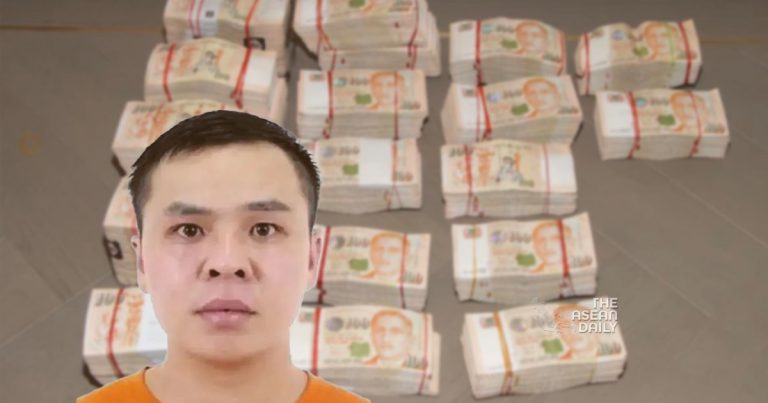12-10-2023 (SINGAPORE) Vang Shuiming, one of the ten individuals charged in the extensive S$2.4 billion (US$1.76 billion) transnational money laundering investigation, made another attempt to secure his release on bail by turning to the High Court for a criminal revision. However, his application was once again dismissed on Thursday.
The judge stressed that the court would be “extremely reluctant” to grant bail in subsequent applications if a prior application had been rejected unless significant changes to the facts or circumstances emerged.
Vang is facing five charges, four of which are non-bailable, putting the burden of proof on him to demonstrate his eligibility for bail. The charges involve using a forged document and possessing criminal proceeds amounting to S$2.4 million from unlicensed moneylending in China.
Vang, a father of two who relocated his family to Singapore in 2019, is identified as a Turk in charge sheets but holds passports from China, Vanuatu, and Cambodia. He was arrested in August and has been in custody along with nine other foreign nationals apprehended in simultaneous police raids.
Two days after his arrest, over US$2.8 million worth of cryptocurrencies were withdrawn from his Binance account by an individual of interest, according to the lead investigating officer’s affidavit to oppose Vang’s bail.
Vang is connected to three other fugitive suspects, including his brother. Despite these circumstances, his most recent bail application was denied on September 29.
Vang’s legal team sought a criminal revision in the High Court, aiming to overturn the lower court’s denial of bail and secure his release. They emphasized the presumption of innocence and argued that the district court should not have sided with the prosecution, as their affidavits were merely “bare assertions.”
The defense maintained that Vang was willing to accept strict limitations on his personal liberty, including 24-hour surveillance. To exercise its revisionary powers, the High Court must find that a serious injustice resulted from a lower court decision. However, Justice Vincent Hoong determined that this threshold had not been met.
Justice Hoong acknowledged the gravity of Vang’s charges and the potential for substantial fines and lengthy prison sentences. He pointed out that Vang’s four money laundering charges are non-bailable offenses, placing the responsibility on Vang to demonstrate that bail should be granted, as established in prior cases.
Vang’s refusal to address or counter the investigating officer’s claims that he was a flight risk was deemed unsatisfactory by Justice Hoong. He highlighted the risk of Vang fleeing, given the existence of a Cambodian passport that Singapore police could not locate and substantial overseas assets, particularly in Cambodia. Justice Hoong also rejected Vang’s assertion that he had “deep roots” in Singapore.
In conclusion, Justice Hoong reminded Vang that the court would be exceedingly reluctant to grant bail in subsequent applications following a prior rejection, unless there were material changes in circumstances or the emergence of new facts.
Vang’s lawyer acknowledged Justice Hoong’s comments regarding the bail issue and expressed his intent to move the case forward as expeditiously as possible, reiterating that his client intended to contest the charges.
In a separate development, Vang’s co-accused, Su Haijin, had a pre-trial conference in which the prosecution was encouraged to “consider releasing” any bank accounts or assets that were “not tainted.” The court will receive input from the prosecution on this matter at Su’s next pre-trial conference.




